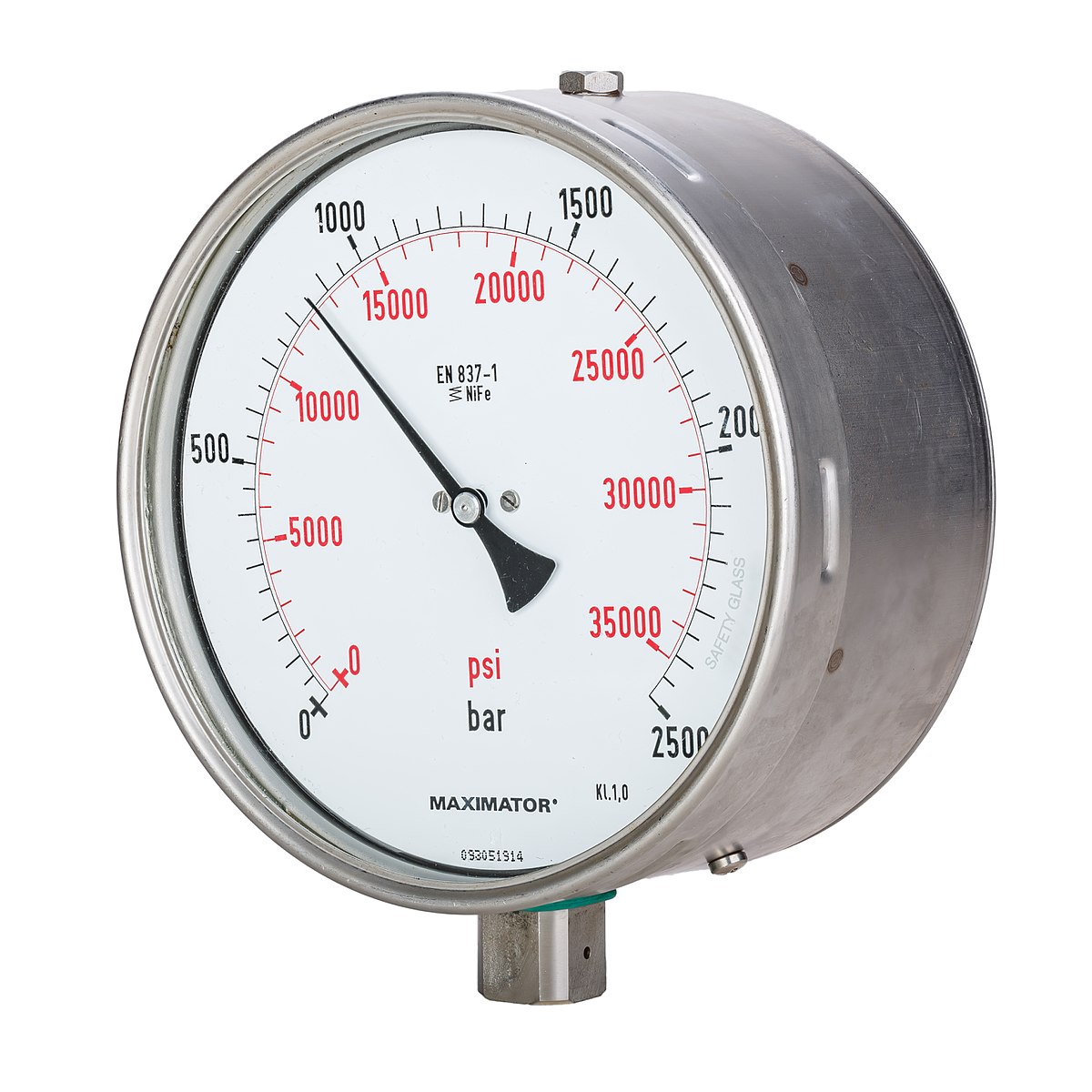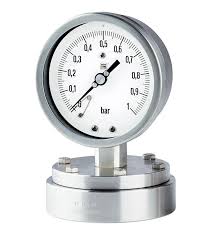Introduction: The Essential Tool in Pressure Measurement
Pressure gauges have been an essential tool in industries
worldwide for centuries. Found in a variety of fields, from automotive to
chemical manufacturing and medical equipment, they offer precise and reliable
measurements of pressure. This piece aims to peel back the layers of this
cornerstone instrument, exploring its functionality, types, and importance in
various industries.
The Mechanics of Pressure Gauges
Before delving into the types of pressure gauges, it's
crucial to understand the basic working principle behind them. At their core,
pressure gauges function as a mechanical response system. They measure the
force exerted by a fluid (either liquid or gas) onto a sensor element, which
then undergoes mechanical deformation. This deformation is then transformed
into a readable value, indicating the pressure of the system.
Analog pressure gauges usually contain a Bourdon tube, a curved, hollow piece of metal that changes shape under pressure. As the tube flexes, it moves a needle on the dial of the gauge, providing a visual representation of the pressure inside the system. In digital pressure gauges, sensors convert pressure into electrical signals, which are then processed and displayed numerically.
Popular Types of Pressure Gauges
There are several types of pressure gauges, each serving
different applications and working environments. The most commonly used
include:
- Bourdon
Tube Pressure Gauges: The oldest and most popular, Bourdon tube gauges
are ideal for quickly measuring high pressures in non-hazardous
environments. They are robust, reliable, and relatively inexpensive.
- Digital
Pressure Gauges: These gauges use electronic sensors and display the
pressure digitally. They offer high accuracy and easy readability and
often have additional features such as data logging and signal outputs for
further analysis.
- Capsule
Pressure Gauges: These gauges are best for measuring low to very
low-pressure ranges. They employ a capsule filled with gas or liquid that
expands or contracts with pressure changes.
- Differential
Pressure Gauges: Ideal for monitoring pressure differences between two
points in a system, these gauges ensure optimal performance and safety in
processes like filtration, flow, level, or pressure drop.


The Role of Pressure Gauges in Various Industries
Manufacturing and Automotive
Pressure gauges are integral to many manufacturing
processes, including chemical, pharmaceutical, and petrochemical. They help
monitor and control the pressure of various systems and processes, ensuring
safety and efficiency. In the automotive industry, pressure gauges play a
crucial role in monitoring tire, oil, and fuel pressure.
Healthcare
In the healthcare industry, pressure gauges are essential in
numerous medical devices. For instance, they are used in respirators and
anesthesia machines to ensure the correct pressure and flow of gases. In
sterilization processes, pressure gauges help maintain the proper pressure
levels to guarantee effective sterilization.
Aviation and Space
Pressure gauges play a vital role in both aviation and space
sectors, measuring everything from fuel pressure in aircraft engines to cabin pressure in commercial planes and spacecraft.
Ensuring Accuracy: The Importance of Calibration
No matter the type or use, maintaining pressure gauge
accuracy is vital. Regular calibration, which compares a device's output with a
standard input, is necessary to ensure reliable and accurate readings. Various
factors, like environmental changes or mechanical shock, can affect a pressure
gauge's accuracy over time. Regular calibration ensures the device remains
reliable, safe, and precise.
Conclusion: The Unseen Hero of Many Industries
Pressure gauges are the unsung heroes of many industries,
silently ensuring that everything from your car tires to your home heating
system operates safely and efficiently. These devices' simplicity, reliability,
and versatility underscore their importance in our everyday lives. As
technology advances, we can expect even more precise and sophisticated pressure
gauges, further enhancing safety, efficiency, and effectiveness in various
sectors.



.jpg)

Post a Comment